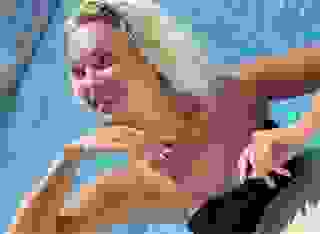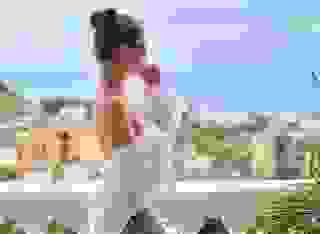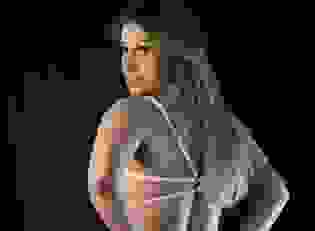Note: You can change font size, font face, and turn on dark mode by clicking the "A" icon tab in the Story Info Box.
You can temporarily switch back to a Classic Literotica® experience during our ongoing public Beta testing. Please consider leaving feedback on issues you experience or suggest improvements.
Click here"Mayor Johnson, if you're asking if you can use the barn at my husband's blacksmith shop, I'm afraid I just made an agreement with a man to buy the shop from me. He's going to pay me some of his profits every month until he's paid me what I asked. You'll have to speak with him about using the barn."
"Oh, who is this man?"
"He said his name is Bird, just Bird. He said he was the boy of a Cherokee mother and a Choctaw father and that his grandfather was a Scottish fur trader. He seemed like a nice man to me."
Mayor Johnson then walked to the Marshall's office to speak with Enos. He didn't have any particular dislike of either the Choctaw or the Cherokee, but some of them had fought for the Confederacy in the war. There were former soldiers of both the Union and the Confederacy now living in Bright Star. The last thing Bright Star needed now was for any kind of prejudice to erupt.
Mayor Johnson found Marshall Dunbar sitting on the chair on the boardwalk in front of the Marshall's office.
"Morning, Enos. Got a minute to talk?"
Marshall Dunbar nodded, stood up, and followed Mayor Johnson into the office. Once they were inside, he closed the door and then offered the Mayor a cup of coffee. The Mayor declined.
"No, no coffee, but thank you.
"I just spoke with Hester Patterson about renting the barn down at the blacksmith's shop for use as a school. There's an Irish woman who came to town a day or so back and she wants to start a school.
"Hester said she'd sold the shop to a man who claims to be Choctaw, Cherokee, and Scottish. Do you know this man?"
Enos nodded.
"Yes. I spoke with him yesterday. He has an interesting story. He left Grits in Indian territory because his girlfriend's mother wouldn't let them marry. The girl hung herself, and her mother blamed him. She told Bird if he stayed, she'd have him killed. He said all he wants is to be our blacksmith and help the town as much as he's able to. He said Silas, the stagecoach wrangler, told him he should talk to me first.
Mayor Johnson frowned.
"You think he's all right then?"
"Yes. He didn't impress me as a man to cause trouble, and if Silas told him to come talk to me, he thinks he'll do a good job. You'll have to make up your own mind about that, though."
"Well, if you say he'll do all right, I believe you. I'll go talk to him about renting his barn to be a school."
Enos leaned forward then.
"I hadn't heard about an Irish woman in Bright Star."
Mayor Johnson smiled.
"She checked into my hotel two days ago. Her name is Abigail O'Grady and she looks as Irish as they come. Talks a little funny and her hair is as red as red can be. Pretty girl too.
"I don't know if she can teach school or not, but if she can, she'll be good for Bright Star. I figured if she can't, I can tell her the town can't pay her anymore. I think she'll probably find a husband pretty soon anyway."
Mayor Johnson chuckled then.
"Enos, you're not married. Maybe you should go talk to her. Might find out she'd make a good wife. She was good enough to keep house and be a nanny in New York City."
Enos smiled.
"I'll go talk to her when I have a chance, but I'm not looking for a wife, not just yet."
Mayor Johnson grinned.
"He who waits sometimes waits too long, Enos. Don't say I didn't warn you. Well, I think I'll ask Miss O'Grady to accompany me to talk with this Bird fellow. If I can't convince him, she probably can. She could convince me to do about anything she wanted me to do...uh...you won't tell Elizabeth I said that, will you?"
Enos grinned.
"See why I'm not looking for a wife?"
}{
Bird was looking at the steel in racks against the wall of the blacksmith's shop when he heard a man clear his throat. He turned and saw a man in a business suit and a woman wearing a typical woman's housedress. The man just looked like the other men he'd seen when he walked to the Marshall's office. The woman wasn't like the other women he'd seen in his life, not at all.
She had almost pure white skin and it was accented by the mane of red hair that cascaded over her shoulders. She was about as tall as the blacksmith's wife, but where the blacksmith's wife had looked slender, this woman was slender too, but filled out in the bust and hips more. He turned to them.
"Hello. You probably wonder what I'm doing here. Well, I'm a blacksmith and I arranged with Mrs. Patterson to buy this shop. What can I do for you?"
Mayor Johnson walked to the man and offered his hand, a gesture Bird hadn't expected. The man smiled when Bird shook his hand.
"Marshall Dunbar said you go by Bird. Well Mr. Bird, this young lady is Abigail O'Grady and she wants to teach school in Bright Star. I told her I'd rent the barn at the blacksmith's shop, but then I found out Hester had sold it to you.
"What we want to know is if you'd consider the same arrangement. You'd rent the barn, or part of it anyway, to the town and Miss O'Grady would teach school there. The town would pay you five dollars a month."
Bird looked at the woman. The people in the town might be all right with an Indian blacksmith, but what would they think if he was there with a white woman?"
"You'd want to teach school in my barn. I live here so I'd be here every day."
She nodded.
"Yes, I do. You'll be in your shop and I'll be in the barn anyway."
Bird did some quick thinking. He'd agreed to pay Mrs. Patterson thirty-five dollars a month and twenty-five of that was going to come from his profits assuming he had a profit. If he rented the barn for five dollars a month, he'd only have to make twenty dollars over his costs. Twenty sounded a lot better than twenty-five.
Bird nodded.
"I suppose it would be all right. You're sure you won't be bothered by me hammering and doing other things?"
The woman smiled.
"Mr. Bird, when I went to school, we had school outside some of the time. The birds were singing and there were sheep in the pasture. I still managed to learn to read, write, and do my sums. I expect the children of the town will too."
Mayor Johnson cleared his throat.
"Well, it sounds like Bright Star has a new blacksmith and a new school and school teacher. Miss O'Grady, if it pleases you, I'll leave you two to have a look at the barn and to discuss what you might need in the way of benches. Mr. Bird, welcome to Bright Star. The Marshall say's you're a good man and we need more good men in town."
With that, Mayor Johnson walked back to the hotel. He hoped he'd not started something he'd regret. He knew very little about the Choctaw and Cherokee other than they stayed in Indian Territory and seldom bothered anyone passing through. He hoped Enos was right.
}{
After the Mayor left, Bird turned to Abigail.
"Miss O'Grady, are you sure about this? I'm sure you've figured out that I'm not a white man. Aren't you afraid of me?"
Katherine didn't have to think of an answer to that question because she'd been thinking about it since she first laid eyes on Bird. She'd never seen an Indian before, but other than that he was a little darker than most men and his hair was really long, he didn't look like some of the men she'd met in her life. Those men she'd feared as soon as she saw them or even just heard what they said. Bird didn't look like that, and his deep, resonant voice sounded kind, not threatening.
"No, Mr. Bird, I'm not afraid of you. I've seen a lot worse than you, believe me."
"Oh, where was that?"
Katherine wasn't prepared for that question. She had to think for a few moments.
"Mr. Bird, I'm from Ireland. Do you understand what that means?"
Bird shook his head.
"Well, what it means is that nobody in New York City likes Irish people. They think you're stupid and lazy, and they always frown when they see you and they say bad things about you. It's bad enough for Irish men, but Irish women...well, a lady shouldn't say the things I've been told.
Bird nodded.
"It sounds a lot like what a lot of white people think and say about Indians. That's why they're making all the Indians move to Indian Territory, well that and they want the land we used to live on and hunt.
"You don't need to be afraid of me. I want to be a part of this town, and doing anything to you would just get me told to move on or even worse.
"I don't know where New York City is. I've heard of it, but all I know is it's a long way from Bright Star, Texas. How did you get here?"
Katherine told Bird the same story that she'd told Mayor Johnson and he seemed satisfied. He frowned when she asked him how he got to Bright Star and her face told him she realized she'd asked a question she shouldn't have asked.
Bird just shrugged his shoulders.
"My village already had a blacksmith and there wasn't enough work for two. I'd heard that Texas was a nice place so I drove my wagon until I came to Bright Star. I found out the town needed a blacksmith, so here I am.
"Now, I suppose you want to see the barn with a dirt floor. Mayor Johnson said you'd need some benches. Do you know what you want? If you do, I can probably make them for you."
}{
Things changed a lot once the blacksmith's shop and the school were up and running. Both started slowly.
It was October when Katherine began teaching school and the farmers in the area were in the process of starting to harvest their crops. The Bright Star School started with just six children who were the children of people who lived in Bright Star. Their ages ranged from six to eleven, and at first Katherine was a little unsure of how to teach them. The eleven year old children could read a little because the preacher of the local church had taught them how to read the bible. The youngest couldn't read at all.
Then she remembered that the Richardson's children were separated by several years in age, and began teaching the same way the private teacher had taught them.
Mornings were for reading and writing. At night in her hotel room, she'd write little stories with small words. They were stories she'd heard as a child and she'd have them gather around her as she pointed to each word as she read the story. She'd start with the youngest and explain the letters of the alphabet and how they sounded and how to draw each letter.
She'd then sit the youngest on the bench, give them a piece of paper and a pencil, and ask them to copy the story as they read it by themselves.
She worked with the older students then. There was no newspaper in Bright Star, but there was plenty of reading material available. She didn't use the Bible even though one of her students suggested it. She'd told the Mayor that she wouldn't teach anything about being Catholic, and she figured she shouldn't teach using anything involving any religion.
Instead, she asked each student to bring in anything they had at home with words. Those students read letters their parents had gotten and the shipping invoices the owner of the General Store had given her to use in the school. She would likewise assign them to write about one of the things in their own words, and she'd correct each one and explain what the student had done wrong and what the student had done correctly.
By the first of November, the three girls in her school were overjoyed at being able to read and then copy the words they'd read. The three boys would rather have been outside playing, but Katherine knew that was just boys. She tried to make things interesting for them by writing little stories about farming and hunting for the youngest, and by assigning the older boys to read the descriptions of tools and guns in the General Store and then write about which they would like to have and how they would use them.
Bird's blacksmithing business also was slow to start until the left rear tire on Mr. Eickson's only wagon got loose in the middle of picking his corn. He had ridden one of his work horses to his nearest neighbor's farm and asked if the neighbor would help him fix it.
When the neighbor saw the tire almost hanging off the wooden wheel, he shook his head and said this was a job for a man who knew what he was doing. Together, they brought the wheel to Bird and asked him if he could fix it.
Bird thought it would take him about an hour to put the wheel back together. He told Mr. Erikson he could fix it but that it would cost three dollars. Mr. Erikson said he'd already asked about the price of a new wheel from the General Store and it would cost twenty dollars and would take a week to get to Bright Star. He wouldn't have twenty dollars until he sold his corn and he couldn't wait a week anyway. He asked Bird if he'd fix his wheel in exchange for some of his wife's dried green beans. Once he sold his corn, he'd pay Bird the three dollars.
Bird thought about the offer, and then agreed. He understood that Mr. Erikson probably didn't have much money. Most farmers in Grits had lived on what they grew and he didn't figure it was much different in Bright Star. If he said he wouldn't fix the wheel unless he got paid, word would get around that Bird was only interested in money and not in helping the people of Bright Star.
Bird said he could do that, and fired up his forge. While the forge heated, Bird made sure all the spokes were tight in the hub and that the fellies were seated on the spoke tenons. Then he measured the outside circumference with his traveler and then measured the inside of the tire. Once he'd done that, he knew why the tire had loosened up.
He asked Mr. Erikson how old the wagon was and where he'd bought it. Mr. Erikson said he'd bought the wagon from the General Store only a year before.
Bird smiled.
"Well, the reason your tire loosened up is the wagon was made in St. Louis where it's pretty moist most of the year. In Texas, it's pretty dry most of the time. What happened is the wood shrank and that made the wheel just a little smaller. Iron doesn't do anything, wet or dry, so the tire got loose. I'll have to cut some out of the tire, but once I put it back on the wheel, the fit of the tire will keep everything together like it was before. You should probably look at the other tires too. It won't take as long to tighten them up. If I don't have to make new spokes, I can probably do it for three dollars a wheel too."
Bird used a hammer and chisel to cut about an eighth of an inch out of the tire, then put the cut part in his forge and cranked the blower until the wheel was red hot. He then bent the wheel so about a quarter of an inch overlapped at the cut section, sprinkled on enough borax powder to help the iron stick together, and then put the cut part back into his forge.
After cranking the blower until the metal was white hot, Bird lifted the wheel from the forge, placed it on the anvil beside the forge, and tapped it with some light blows. Those blows were to make sure both parts of the cut edges were touching.
He put the wheel back into the forge, and once it was again white hot, put the wheel on his anvil and began making rapid, hard blows with his heaviest hammer. After two more trips to the forge and then back to the anvil, the cut part of the tire was welded together and the thickness and width of the tire there were the same as the rest of the tire.
It only took a few minutes of rotating the tire in his forge to expand the metal so it would go over the wooden wheel fellies. Bird used two tongs to lower the wheel over the fellies and when it was positioned correctly, he started pouring water on the tire. As the tire cooled and shrank, Bird tapped it to make sure it was centered on the wheel. When he was satisfied, he picked it up and dropped it about six inches onto the floor of the shop. The sound was a dull ringing sound. That meant the tire wouldn't come loose again.
It was two weeks later that Mr. Erikson drove his wagon up to the blacksmith's shop. Behind him was the neighbor who had helped him.
"Mr. Bird, I got my corn all picked and then I checked the other three wheels. They look loose to me. See what you think. Oh, and Jacob here, he bought his wagon the same time I bought mine. He thinks his wheels could use tightening up too."
}{
Bird was busy most days after that. The farmers all had their crops in and were getting their equipment ready for the next spring. Bird forge-welded new points onto plow shears for a dollar each, fixed several more wheels, and started building a freight wagon for the General Store.
Katherine was busy too. Once the crops were in, she started getting children from the farm families. Her school class had swelled to eleven, and though some were learning faster than others, at the end of each day, Katherine could look back and smile because they were learning to read and write, the youngest were learning their sums, and the oldest were learning the multiplication tables. Because of her success, the town council was making plans to build an actual schoolhouse the next spring.
As she left every day, she'd stop by the shop where Bird was usually still working. She wasn't sure why she did, except that Bird was the only man in town she knew very well. He didn't seem to know many people in town either.
She'd ask how his business was going and he'd explain what he'd done that day. Katherine usually didn't understand what he was telling her, so she'd ask him to show her. In her mind, she could use that knowledge to explain to her students why it was important for them to read, write, and do mathematics.
In the process, she and Bird became friends. To Katherine, knowing Bird was almost like having Daly back. Bird was taller than most men, and there was no doubt that he was strong. Both were the same as Daly had been.
Bird enjoyed talking to the woman he knew as Abigail. He wasn't sure why except that while most of the town seemed to have accepted him for what he could do, they didn't seem to be willing to become friends. They always called him "Mr. Bird" instead of just Bird, and they seemed to be careful about keeping their relationship with him on a business level.
He hadn't seen that with the other men in town. Most people didn't call Marshall Dunbar, Marshall Dunbar or even Mr. Dunbar. They called him Enos. When they spoke of the stagecoach wrangler, they spoke of Silas. The Mayor was Aaron, and the owner of the General Store was Henry.
Only Abigail called him Bird, and that was after he'd told her it didn't feel right to be called Mr. Bird. She'd asked what he wanted to be called and he said just Bird would be fine. She'd smiled and said if she was going to call him Bird he should call her Abigail.
Both Bird and Katherine thought they'd found their place in life. Bird hadn't forgotten about Nanyehi, but she was more of a memory than someone he'd once loved. That was because Mrs. Patterson sometimes came to the shop and watched him work. She said she did that because Bird reminded her of her husband. Bird thought maybe she had another reason because she kept playing with her hair while she watched him.
Katherine had almost forgotten why she'd come to Bright Star. It had been months and nobody had come to Bright Star looking for her. She congratulated herself for changing her name when she left Sedalia. It was either that or Harrison Smythe had stopped looking for her.
Both those thoughts came crashing down around Katherine the Monday morning the first week of May.
Mayor Johnson had come into the diner just as Katherine was finishing her breakfast. He was frowning when he sat down across the table from her.
"Miss O'Grady, a man came into my office yesterday asking if there was a red-haired Irish woman named Katherine O'Devlin in town. He said he was working on surveying the route for a railroad from Sedalia, Missouri, to Dallas. He said he knew this Katherine O'Devlin from New York City, and wanted to hire her as his houskeeper once he built a house in Bright Star. I told him there wasn't any such woman in Bright Star and he left, but he hasn't left town yet. I know he asked Henry the same question and Henry gave him the same answer.








